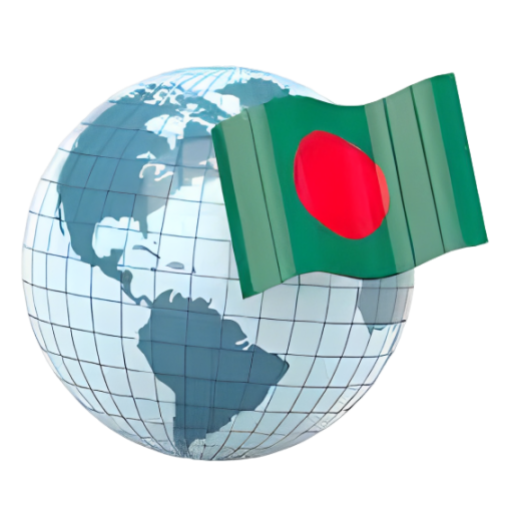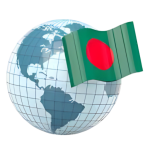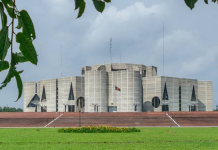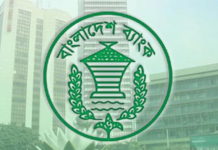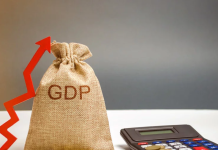During the July-August of this year, Bangladesh witnessed a major mass upsurge led by students, culminating in the collapse of the Awami League regime and establishment of an interim government. Several articles in this issue focus on much-needed reforms in various segments of Bangladesh society.
Nazrul Islam in his article “Proportional representation to reduce inequality and discrimination,” compares the current “Winner-takes-all” (WTA) electoral system in Bangladesh with the Proportional Representation (PR) System which exists in majority of countries. Dr. Islam argues that the PR system will promote democracy and tolerant political culture in Bangladesh.
Tanweer Akram in his article on Bangladesh’s monetary policy, monetary-fiscal coordination, and the ‘monsoon revolution,’ explores the role of the Bangladesh Bank in carrying out reforms in the banking and financial sector and in curbing the rate of inflation. He cautions that in the presence of structural factors, raising the policy interest rate may not lower the inflation rate. He calls for nuanced policy measures to address the underlying structural causes of inflation, and warns that failure to do so can harm the economy.
In the article “Truth behind numbers: Hasina’s development illusion,” Ziauddin Hyder questions the narrative of “unprecedented development” during the last 15 years, touted by the Awami League government. He exposes the pitfalls of GDP fetishism and highlights the importance of other metrics of development such as equitable income distribution, governance, and the quality of environment.
In a similar vein, Khalid Saifullah in his article “Sheikh Hasina’s development myth,” highlights the weaknesses of the development process during the tenure of Sheikh Hasina such as high unemployment among the youth, slow structural transformation in the economy, and slowing down in the eradication of extreme poverty.
Mohammad Zaman in his article “Natun Bangladesh: A quest for meaningful changes,” underscores the necessity of overhauling the political institutions of Bangladesh by the interim government so that cycles of misgovernance and authoritarianism do not recur.
Chowdhury Salahuddin Mahmood in the article “Bangladesh with its third historical opportunity,” describes how Bangladesh missed historical opportunities in 1971 and 1990. He argues that the July-August mass movement that toppled the Awami League regime has provided a third historical opportunity. This third opportunity calls for major reforms in the constitution and electoral system in Bangladesh.
Education is the foundation of a society that acts as the driver of socio-economic development. Yet education, including higher education, has remained the weakest link in Bangladesh for decades. Mohammad Karim and Habib Siddiqui demonstrate how poor university governance and politicization have led to poor performance in teaching and research in public universities in Bangladesh. The authors attribute this to the University Ordinances promulgated in 1973 to govern public universities and call for rewriting them.
Mostafa Abdullah in his article “বাংলাদেশঃ বর্তমান ও আগামি দিনের ভাবনা”, explores how success is defined, measured, and rewarded in Bangladesh in education and workplace. Although written based on his personal experiences and observations of almost three decades ago, they still resonate. He notes the weakness in Bangladesh among employees in group work, collective decision making, and independent decision making. While this weakness could be due to the feudal culture and long colonial history, the solution lies in the reform of the education system to change a mind-set of “me” to “us”.
Sharing of water from 54 transboundary rivers that flow through Bangladesh and India has remained a perennial problem for the lower riparian riverine country, Bangladesh, which increasingly faces the problem of periodic floods and desertification as well as salinity. Jasim Uddin Ahmad in his article “Transboundary rivers: why Bangladesh’s vital lifeline turns into tragedy,” examines the problem of water dispute between India and Bangladesh. Contrary to India’s insistence for a bilateral approach that failed to solve the issue, the author calls for the establishment of a regional river commission involving Bangladesh and neighbouring countries including China.
Digitalization involves simplifying and streamlining regulatory and commercial procedures to facilitate international trade. Salehin Khan in his article “Digital trade facilitation in Bangladesh: steps to accelerate progress,” outlines the steps that are essential to accelerate digital trade facilitation in Bangladesh.
In recent years, Portugal has become an attractive destination for Bangladeshi workers because of relatively less restrictive immigration rules. Sadequl Islam’s “Bangladeshis in Portugal: A conversation with Mr. Mani Rahman, a vlogger in Lisbon,” provides glimpses into the living and working conditions of Bangladeshis in Lisbon.
Finally, this issue includes a review of a book Our Story: An Anthology of life stories of the first-generation Bangladeshis in Australia by Mostafa Abdullah and Mohammad Abdur Razzaque. It is a unique book narrating the experiences of early Bangladeshi settlers in Australia and their children growing up in a challenging environment, having to negotiate the tension between their parents’ religious-cultural backgrounds and the culture of their birthplace and adopted home.
Next issue (Vol. 2, No. 4)
Release date: 16 December, 2024
Lead theme: Becoming an independent nation
Deadline for submission: 15 November, 2024
